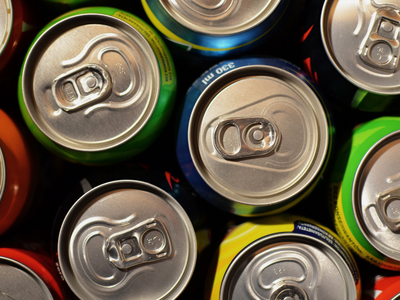A group, Concerned Consumers (CC) has drawn attention to the drastic damage to the national economy as a result of the continuous importation of energy drinks, which it described, “as an act of sabotage and destruction to local industries.”
The Convener and Co-convener of the CC, Olufemi Odebunmi and Rufai Rimi, respectively wrote in a statement titled, ‘The Importation of Energy Drinks into Nigeria Despite the Proven Health Hazards and the Various Ban on Imported Juices,’ addressed to the heads of relevant agencies of government, a copy of which was seen by the media posits that “Energy drinks fall into the category of ready-to-drink fruit juice, which importation of same in whatsoever mode and means remains banned in Nigeria since 2003.”
Condemning the massive influx of imported energy drinks into the country, Odebunmi and Rimi called on agencies of government including the Central Bank of Nigeria (CBN), Nigeria Customs Service, the National Agency for Foods and Drugs Administration and Control (NAFDAC), Consumers Protection Council of Nigeria, Standards Organization of Nigeria (SON), “to be vigilant and discourage the unscrupulous importation of energy drinks into Nigeria which will jeopardize the interest of the local industries and sabotage the national interest of the country.”
For about 20 years now, product HS Codes 2009.11.0012 – 2009.11.0013 – 2009.9000.99 have been on the Nigeria Customs Service (NCS) list of prohibited products.
Ramadan: Consumption of ORS, other energy drinks surge in Kano
One energy drink is all it takes to hurt your blood vessels
“By the circular of the Federal Ministry of Finance of March 20, 2015, the Import Prohibition List (Trade) Annex III states all the products and goods whose importation into Nigeria was prohibited. Curiously, fruit juice in retail packs were banned along with water, mineral water, aerated water containing added sugar or sweetening matter flavoured, other non-alcoholic beverages and beer and stout and the only exception was energy or health drinks.”
According to the CC officials, more than 85 per cent of the market is dominated by imported energy drink brands. The locally manufactured brands are all struggling as they don’t have international brand names and recognition to match imported ones. They are, therefore, disadvantaged and even considered inferior.
The group further stated that failure to enforce a ban on restricted products is a clear demonstration of the government’s lack of support for local industries by not check-mating smuggled energy drinks.

 Join Daily Trust WhatsApp Community For Quick Access To News and Happenings Around You.
Join Daily Trust WhatsApp Community For Quick Access To News and Happenings Around You.


